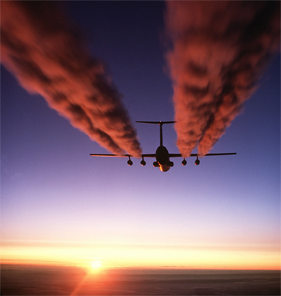ICAO’s solution to airline emissions is a joke

Stop pulling our legs guys – let’s be serious about our biggest danger
Climate change is the biggest problem that the global tourism industry faces. This was highlighted in all of the discussions that took place around the time of the Copenhagen COP15 meetings of global leaders.
In particular the UNWTO together with UNEP, the World Economic Forum and the World Meteorological Organisation called for action at a special meeting at Davos in 2007. You can read the short document here:
Following this call to action, the UNWTO published a major document to help the industry mitigate the effects of climate change and adapt their operations for it. It was created for the University of Oxford, UNEP, UNWTO and WMO. The scientists that investigated the situation and wrote the document included Murray Simpson, Stefan Gössling, and Daniel Scott. Its 150 pages are well worth a read.
All these documents, later papers and investigations indicate three major facts – that tourism will die if climate change is worsened as a result of increasing emissions, that tourism is responsible for around 5% of current emissions and that transport (in particular airlines) are responsible for some 80% of this 5%..
Tourism equals transport & accommodation. So what are these two partners (destinations and transport) doing to get rid of this 5% of global emissions that tourism currently represents. Will it be reduced? Or, at least, will it be stabilized?
Of course it’s not a stable 5% – the tourism industry is set to double by 2030 and the airline business even more than that. Great growth – but it comes with consequences.
In the light of all the massive climate change problems on the horizon, it looks like many destinations all over the world are taking their mission seriously and there are a number of organizations that are helping them do so including the Global Sustainable Tourism Council, Green Destinations and others.
The story is somewhat different on the part of the airlines who, of course, have three big partners to fight for their commercial interests – IATA, ICAO and the airplane makers backed by their governments.
Here is the airline emissions story:
Since 2012 to fly point-to-point in Europe airlines have to join the EU Emissions Trading System Under the EU ETS, all airlines operating in Europe, European and non-European alike, are required to monitor, report and verify their emissions, and to surrender allowances against those emissions. They receive tradeable allowances covering a certain level of emissions from their flights per year. So manage their emissions.
The European system has so far contributed to reducing the carbon footprint of the aviation sector by more than 17 million tonnes per year, with compliance covering over 99.5% of emissions.
Airlines flying into and out of Europe to intercontinental destinations were also meant to be part of this scheme from 2012 but as the deadline approached all hell broke loose.
The US government among others banned their airlines from joining the scheme citing the Chicago Convention and the Openskies Treaty signed to foster world trade after the second world war and giving airlines major tax breaks including tax-free fuel. Story here http://www.travelmole.com/news_feature.php?news_id=1149757&c=setreg®ion=3
Eventually the EU bowed down to this barrage of powerful opposition and conceded that international emissions should be monitored internationally and the issue was taken over by the ICAO (The Montreal-based Civil Aviation Organization also set up by the Chicago Convention).
The ICAO was to come up with a valid plan to monitor and manage international airline emissions by 2016.
And they did.
The plan is called CORSIA and it is a tiny bit weaker than the EUETS (well coming from an organization that engineered a 70-year tax break it would be, wouldn’t it?)
Here are the obvious reasons:
- CORSIA is voluntary – not all airlines need to join until 2035 by which time emissions will at least be doubled.
- CORSIA only covers Carbon Emissions rather than the broader Greenhouse Gas Emissions
- If the airlines break their emissions caps they’ll have to invest in forests to mitigate the emissions. Given current forecasts of growth the world will become one enormous forest – until the trees die when all that stored carbon will be released.
So CORSIA is an ill-concealed joke and in very bad taste.
Airlines have been given so many tax breaks over the last 70 years – including government support, bribes from airplane-makers, special financing deals – they maybe think that they live charmed lives.
But CORSIA is a joke too far.
Valere Tjolle
@ValereTjolle
 United Kingdom
United Kingdom United States
United States Asia Pacific
Asia Pacific












































Dozens fall ill in P&O Cruises ship outbreak
Turkish Airlines flight in emergency landing after pilot dies
Boy falls to death on cruise ship
Protestors now targeting Amsterdam cruise calls
Unexpected wave rocks cruise ship